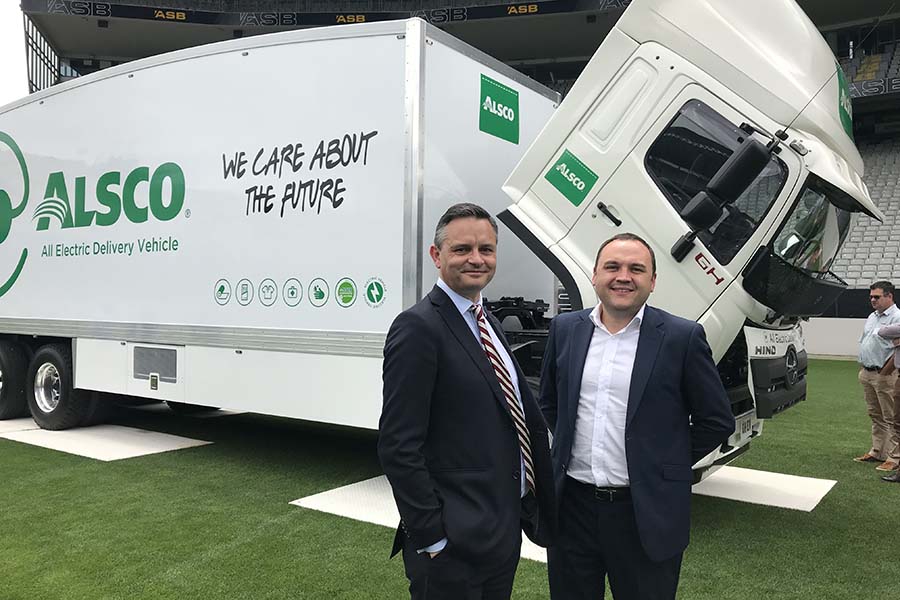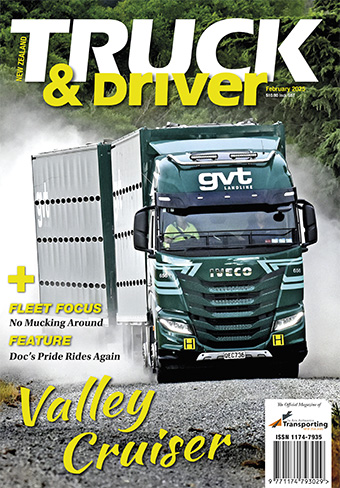Ia Ara Aotearoa Transporting New Zealand News


Green freight must be longterm goal for industry
Environmental considerations, particularly the reduction of emissions, is becoming an essential part of every successful customer-facing business.
New Zealand's transition to a low or zero carbon emissions economy has begun and will, by necessity, only accelerate over the next 30 years or so as we head towards our stated target of carbon neutrality by 2050, says RTF's Nick Leggett.
"Pressure is coming on from competitors, suppliers and critics of the industry. There is more and more information out there regarding a business's environmental credentials and that is having a big impact on consumer behaviour."
International insurer IAG recently released its second annual survey of how NZers feel about climate change. The poll found that 79% of people see climate change as important to them and 67% said they were prepared to take personal actions to reduce the impacts of it.
...Environmental considerations, particularly the reduction of emissions, is becoming an essential part of every successful customer-facing business.
New Zealand's transition to a low or zero carbon emissions economy has begun and will, by necessity, only accelerate over the next 30 years or so as we head towards our stated target of carbon neutrality by 2050, says RTF's Nick Leggett.
"Pressure is coming on from competitors, suppliers and critics of the industry. There is more and more information out there regarding a business's environmental credentials and that is having a big impact on consumer behaviour."
International insurer IAG recently released its second annual survey of how NZers feel about climate change. The poll found that 79% of people see climate change as important to them and 67% said they were prepared to take personal actions to reduce the impacts of it.
"We know that the public expect greater environmental stewardship through the entire lifecycle of a product," says Leggett.
"They want to feel good about the businesses they engage with and that goes through the whole supply chain.
"Modern consumers want to know that, at every stage of the supply chain, businesses are doing what they can to mitigate their environmental impact. For road transport a significant reduction in emissions presents a real challenge."
While improving engine technology over the last 20 to 30 years has significantly improved fuel efficiency and environmental outcomes, transport still contributes 20% of NZ greenhouse gas emissions. Of this, heavy vehicle transport makes up almost a quarter.
As RTF pointed out in a recent Government consultation on alternative transport fuels, NZ is a minuscule market for truck manufacturers and we are far too small to support the independent development of new power systems. Operators are almost entirely dependent on products already established on the international market, which means new fuel technologies, such as electric and hydrogen, can only be adopted when those technologies are widely available elsewhere.
"For many of NZ's most critical freight tasks, such as logging, livestock transport and linehaul, alternative power technologies simply don't exist," says Leggett.
"It also must be recognised that NZ is a challenging transport environment, especially outside our major centres. The geography is steep, the road surfaces inconsistent and the weather variable.
"New trucks must be reliable in terms of both performance and servicing. Infrastructure, such as fast-charging stations or hydrogen fuel stations, are also few and far between."
All this is not to say that, for specific tasks, suitable alternative-fuel vehicles don't exist – because they do.
Late last year Auckland-based laundry business Alsco launched NZ's first heavy electric highway freight vehicle. The truck, which is based on a Hino GH 1828 and runs at up to 22.5 tonnes fully-laden, will travel 284 kilometres every day, five days a week, between Rotorua, Taupo and Tauranga.
It is estimated that this will save Alsco at least 25,000 litres of diesel, and the environment 67,610 kilograms of CO2e, per year.
For many operators the upfront investment needed for such a vehicle is a major constraint on their uptake. However, for Alsco the investment in electric technology actually compared very favourably to a diesel equivalent. It estimates that its higher upfront costs will be recovered within six months of operation, through significantly reduced running costs.
"The reality is that the competitive nature of the freight industry in NZ results in low transport costs and low margins for operators. This constrains the ability for transport companies to invest in experimental technology, especially for enterprises that make up the bulk of the sector," says Leggett.
"However, if the capital expenditure can be endured and an appropriate freight task is found, then the longterm financial advantages of transitioning to new technologies can be significant."
RTF has recommended to Government that some kind of financial incentive as has been done with electric light vehicles could make a significant difference to the uptake of new technologies within the sector.
The Energy Efficiency and Conservation Authority (EECA) already runs a low emission vehicles contestable fund. It offers up to $7million a year to co-fund projects with private and public sector partners and Alsco sourced some of this funding to start electrifying its fleet.
Adds Leggett: "If any operators are interested in knowing more about this fund please contact RTF and we will assist you in making the necessary enquiries."




 + EQUIPMENT GUIDE - FREE
+ EQUIPMENT GUIDE - FREE
